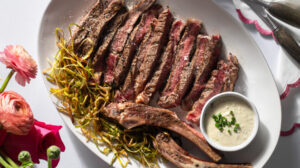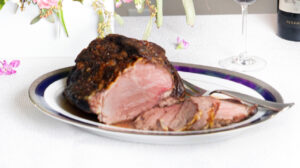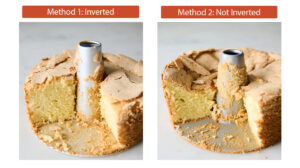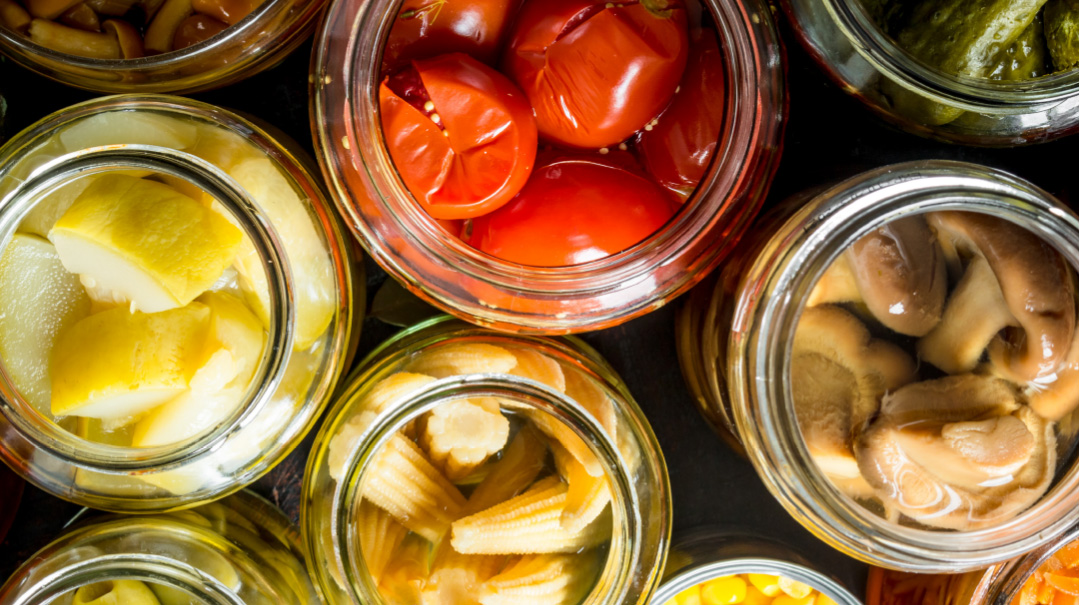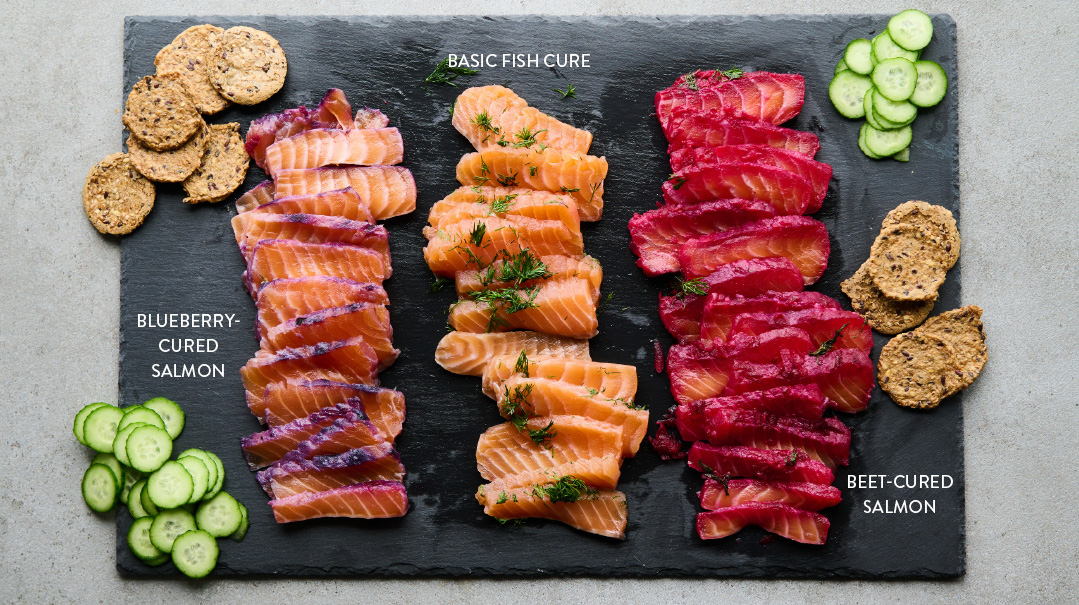COOKING UP a KOSHER STORM
| June 24, 2020What’s a guy or gal to do when the passion to perfect the art of outstanding food service is too strong to settle for hosting in their own dining room?
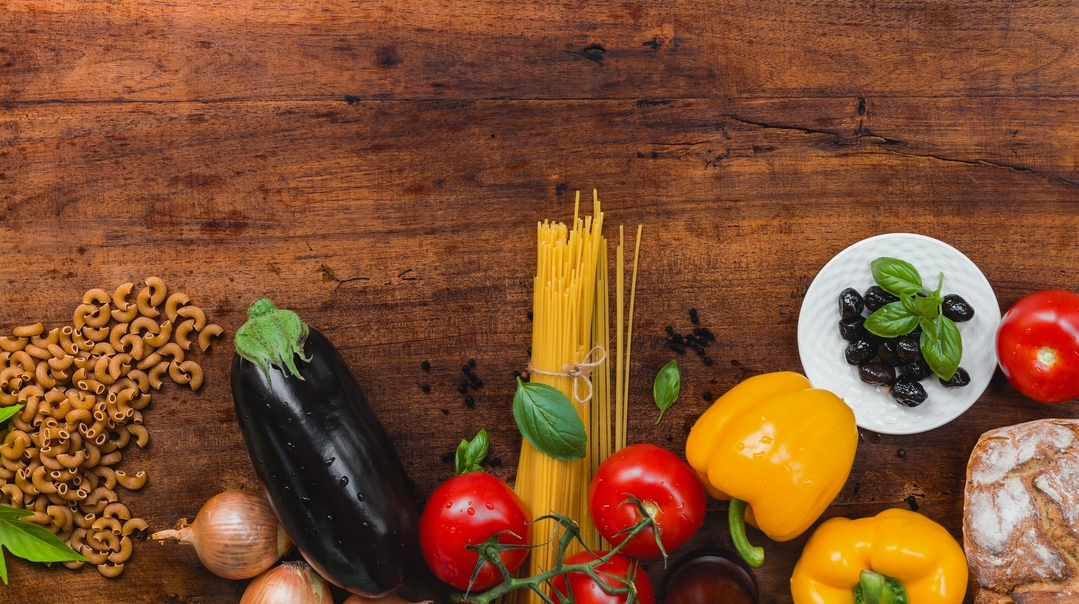
Two culinary school graduates share their experiences
For some talented, creative home cooks, hosting friends and family is gratifying enough to satisfy their culinary passion. But what’s a guy or gal to do when the passion to perfect the art of outstanding food service is too strong to settle for hosting in their own dining room?
Attending brand-name culinary schools can cost upwards of $40,000 a year, and with starting salaries rounding off at about $15 an hour, is this a viable option? Is a degree or formal culinary training necessary to succeed in food service? And what about kosher and other religious concerns — can they be accommodated at a non-kosher cooking school?
There are currently just a handful of kosher culinary schools in the world. The Jerusalem Culinary Institute was the first of its kind, opening in 2003 under the direction of Yochanan Lambiase, who worked at several of Europe’s best restaurants but had no formal training. New York City is home to the Kosher Culinary Center, and Tel Aviv boasts the Dan Gourmet School of Kosher Culinary Arts, where classes are taught in Hebrew. Ben Gurion University in Eilat offers a six-month combined academic and internship program with two tracks: Hospitality & Tourism, or Certification in Israeli, Middle Eastern, and Mediterranean Cuisine.
But for so many, schooling in Israel or New York isn’t feasible. Two graduates of non-kosher culinary schools, Denise Marcellus and Alex Idov, shared their experiences and ensuing career paths.
Challenging But Doable
Denise attended San Diego Mesa College’s Culinary Program in the ’80s, and has worked at boutique hotels across the United States and in the Virgin Islands as a highly sought-after pastry chef. She opened bakeries for Whole Foods and worked alongside some of the biggest names in the industry. Denise and her team assisted Wolfgang Puck in preparing an Academy Awards dinner in Century City, California, and she was presented with a mock Academy Awards trophy as a thank-you gift. She prepared birthday cakes for a Grammy Award-winning musician in Atlanta and General Colin Powell in Caneel Bay, and cooked for US Attorney General William French Smith and his wife in La Jolla, California.
“It’s challenging,” Denise says of keeping kosher while in culinary school, “but it can be done. You ask a classmate you trust to taste your dish and give you feedback, or you make the dish at home and jot down notes. You’ll definitely have to work a bit harder, but it’s doable.”
She adds that once you start working, you should expect to cover for co-workers on their holidays, and they’ll cover for you on theirs. There are times when Shabbos or Yom Tov creates scheduling issues, but if you hold your ground and work hard the rest of the time, the school will respect you for it and do their best to accommodate.
Denise says she gained tremendously from the culturally diverse student body and staff — mainly retired European chefs who were industry giants in their day. “They taught us discipline and consistency, and shared the experience and wisdom they gained cooking in various countries, cultures, and settings.”
The biggest surprise for Denise in her overall culinary education was learning about the strong connection between psychology and food, and the importance of studying food theory — the history and background of food cultures and how we arrived where we are today with current food trends. These days Denise has slowed her pace a bit, working at a large supermarket bakery to ensure kosher and non-kosher consumers alike can enjoy high-quality, decadent baked goods at affordable prices. She’s also training the next generation and sharing her vast knowledge of French pastry and other baking techniques with aspiring pastry chefs.
“If your endgame is to own a restaurant or work as an executive chef, you need to attend a good culinary school, it will give you the edge you need to survive,” she says. For those who are on the fence, she suggests working in a restaurant, bakery, or hotel kitchen for a month. “You’re either going to love it or hate it,” she says, “because it’s very demanding — and that will help you decide if this is the right path for you.”
Continuing the Family Tradition
Alex Idov, aka the Kosherologist, better known for his current blog Bourbon and Schmaltz, says he basically grew up in his father’s bakery in Atlanta. As he got older, he learned the back end of the food business, which inspired him to continue in the same line of work as an adult. “My father loved cooking, my Bubby loved cooking, and I’m the same!”
After attending undergraduate school, Alex took a break from college and attended Sh’or Yoshuv in Far Rockaway for two years. Back in Atlanta, Alex found a Culinary Management Program at Kennesaw State University that had recently opened and awarded him significant scholarships. “I saw the hand of G-d every step of the way,” Alex tells me. “From the scholarships to the fact that the school relocated out of Georgia immediately after I graduated.”
He attended culinary school for three years (he was able to transfer undergrad credits and shave off a year), and says his instructors and classmates throughout his time there were extremely respectful of his kosher needs — they chose a kosher restaurant for an experiential class, and ordered an array of kosher liquors for a class on spirits.
“My father always told me to stay out of the food business,” Alex says, laughing, “but I’d like to use my knowledge as a kiruv tool.” He’s currently working on a Southern kosher cookbook, and creating a food-based Web series that he hopes will engage those who are unaffiliated. “Food is a vehicle that brings us together,” he says.
When asked about the most valuable lesson he learned in culinary school, Alex sheepishly admits, “You’ll actually learn the most out of school. You have to get through the course, because in a busy kitchen the chef isn’t going to be able to stop and explain why or what he’s doing, but the lessons won’t set in and become second nature until you’re doing it on a day-to-day basis.”
Hot Kitchens and Lots of Math
One of the aspects of culinary school that caught Alex off guard was the amount of math required in his coursework. He was used to doubling, tripling, and quadrupling recipe amounts, but getting into the nitty-gritty of purchase orders and cost control was a wakeup call for him, demonstrating that a solid math foundation is necessary even in the culinary field.
Another important component for religious students to consider is the atmosphere in the kitchen. “Everyone’s wearing uniforms, so modesty isn’t much of an issue, but you have to draw boundaries to uphold your values,” he advises. There’s some good-natured ribbing, and sometimes rougher talk, that goes on in the kitchen that you have to be able to handle. A fellow student once told Alex that for a Jewish kid, he was pretty bad at math. “If you can’t handle that give-and take, or won’t realize that it’s not said with ill intent, this isn’t the place for you.”
Regardless of which school they attend, culinary students and graduates should be able to handle a fast-paced, high-intensity work environment. This is not a field for the faint of heart — entry-level jobs typically include long hours in flaming hot kitchens, washing floors, or scraping grease off of massive pots. The most passionate and driven of the bunch can look forward to relatively quick movement through the ranks once they demonstrate that they have what it takes to succeed.
The culinary field is diverse, ever-changing, and full of growth potential. And one of the best perks? Those who work in food service can often bring their “work” home with them, and feed their family (literally) from the fruits of their labor.
Tips from the Pros
Alex advises chef wannabes and home cooks that when cooking anything, patience is key (sound familiar?). “A lot of people like to rush a recipe or don’t take the time to prepare,” he says, “but you need to have a lot of patience if you want your food to come out the way it’s supposed to. Two people may make the same dish and it’ll come out completely different because one of them didn’t take the time to do it correctly.”
With meat, for example, Alex says that many people don’t take the time to chill their meats and trim off the fat, which ends up masking the flavors of whatever is used to season it. “It takes preparation,” Alex admits, “but it’s worth it. The meat also slices more easily and neatly when it’s cold.”
Denise says one of the most valuable lessons she learned was to serve hot food hot and cold food cold. To this day she puts her mug in the microwave before making coffee. She also shares that mise en place (having everything in place before you start) — a mantra for chefs — goes a long way in kitchen success. Preheat the oven, let your dairy or eggs come to room temp, have your pans lined, and lay out all of your ingredients before you start. Treat it like a cooking show, and the process will be that much smoother.
Culinary Careers
Culinary graduates tend to work in restaurants, hotels, or other institutions. The starting point for new grads is typically a line chef, station chef, or prep cook. Moving up the ranks is the sous chef, and then an executive chef who runs the kitchen. Those who prefer a less intense environment may work as a private chef or for small catering companies.
Auguste Escoffer, a top-of-the-line cooking school, says that many of their graduates work as food writers, food stylists, and recipe developers, fields that are infinitely more flexible and feasible for busy parents. Those fascinated by the science of food may take their education a step further and study nutrition, or consult privately with schools, party planners, or restaurants on menu planning.
(Originally featured in Family Table, Issue 698)
Oops! We could not locate your form.




